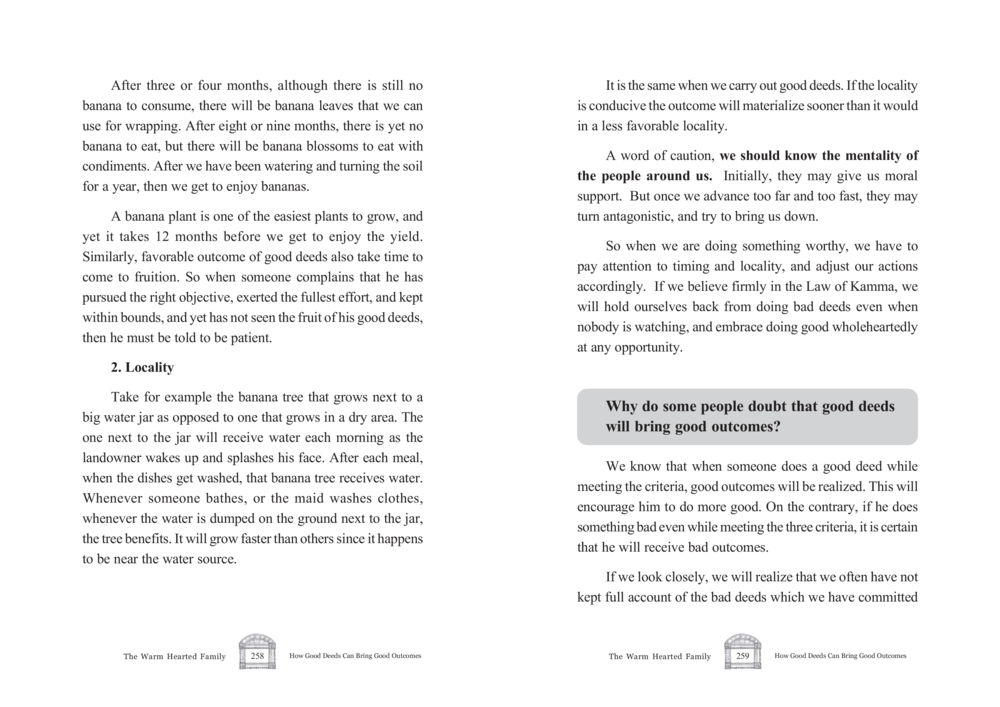The Growth of Good Deeds : หน้า 130/207
The Warm Hearted Family : หน้า 130/207 Exploring the relationship between patience, locality, and the outcomes of good deeds through the analogy of banana plants.
0 ครั้ง

สรุปเนื้อหา
This text discusses how, similar to a banana plant that takes time to yield fruit, good deeds also require patience to bring forth favorable outcomes. It emphasizes that environmental conditions and support play crucial roles in achieving these results. While doing good deeds may initially receive support, one must remain aware of potential negativity from others as progress is made. The narrative stresses the importance of maintaining integrity and continuing to do good, adhering to the Law of Kamma, regardless of outside influence. Ultimately, the expectations of results from good deeds should be tempered with patience and self-reflection on one's actions. For those uncertain about the correlation between good actions and positive outcomes, this text reaffirms that maintaining a clean conscience and awareness of one's deeds can lead to greater positivity in life.
หัวข้อประเด็น
-Patience in Good Deeds
-Influence of Locality on Growth
-The Law of Kamma
-Community Support and Resistance
-Importance of Integrity in Actions
ข้อความต้นฉบับในหน้า
หน้าหนังสือทั้งหมด















































































































































































































